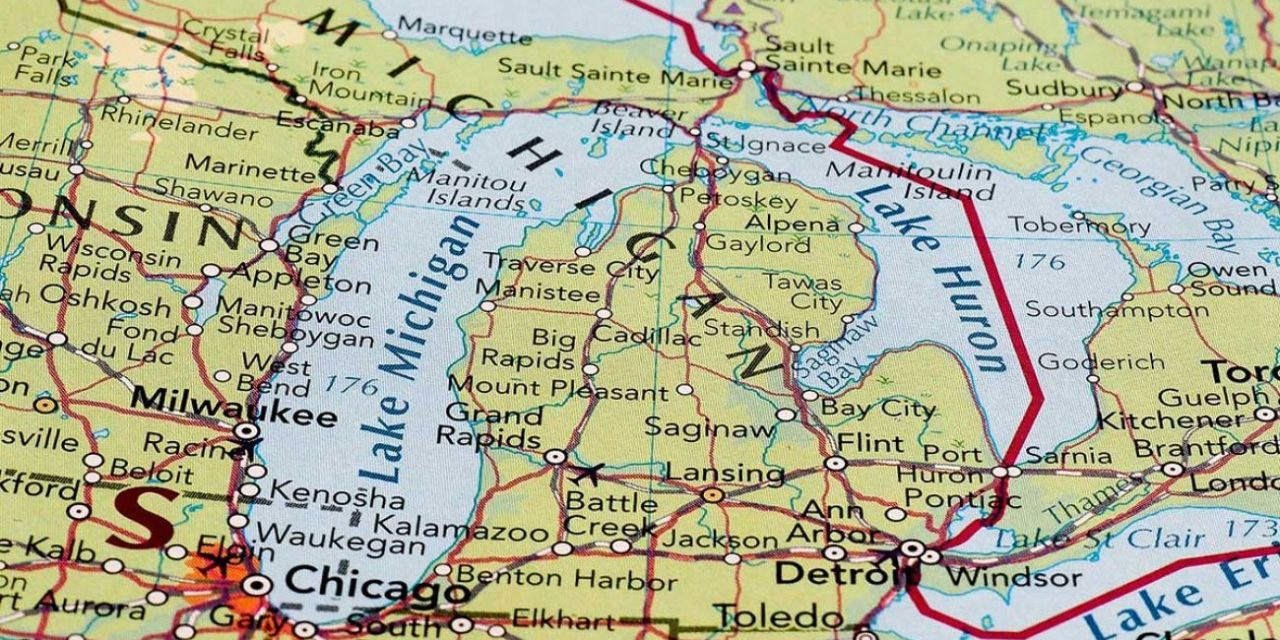By Sergio
In a historic vote, the Michigan Independent Citizens Redistricting Commission last week adopted its first congressional map, which will last 10 years.
The map — known as “Chestnut” — eliminates the state’s two majority-Black congressional districts. Doing so may trigger a lawsuit, but supporters say the maps replace ones that had “packed” African-American voters into districts and diluted their political clout.
If voting patterns from the 2020 election hold, the map would favor Democrats in seven districts and Republicans in six. The delegation is now split 7-7, and next year, the state’s representation falls from 14 to 13 due to sluggish population growth over the last decade.
Commissioner Doug Clark, a Republican, said the new map is more competitive.
“It had more swing districts, and depending who the candidates are, it could go either Republican or Democrat,” Clark said.
The new map creates three open seats and a handful where incumbents would have to face each other or run in different districts.
- The 12th District that goes from Dearborn to north of Southfield, is now home to both Reps. Brenda Lawrence, D-Southfield, and Debbie Dingell, D-Dearborn.
- The 8th District, which includes Flint, Saginaw, Midland, and Bay City, is now home to Reps. Dan Kildee, D-Flint, and John Moolenaar, R-Midland.
- The 4th District, which includes Benton Harbor, Kalamazoo, Battle Creek and Holland will have Reps. Fred Upton, R-St. Joseph, and Bill Huizenga, R-Zeeland.
- The 9th District, which includes most of the Thumb, will have Reps. Elissa Slotkin, D-Holly, and Lisa McClain, R-Bruce Township as incumbents.
Three districts, which includes Ann Arbor, Lansing and west Michigan, are open and have no incumbent, according to a Bridge Michigan analysis.
Eight of 13 commissioners — Richard Weiss (independent), Dustin Witjes (Democrat), Doug Clark (Republican), Anthony Eid (independent), Brittni Kellom (Democrat), Steve Lett (independent), Cynthia Orton (Republican), and Janice Vallette (independent) — voted for the map.
Eid said the map did a better job at incorporating communities of interest — like-minded voters — especially Black voters in Detroit.
While the Chestnut map includes districts with a higher Black voting age population than other proposals, it has no districts in which Black voters comprise over 51 percent of the population.
The panel has followed the advice of its voting rights attorney and partisan fairness experts, who have said Black voters in Detroit can still elect their candidate of choice without having an overwhelming majority.
Read the Full StorySubscribe to One Detroit’s YouTube Channel & Don’t miss One Detroit Mondays and Thursdays at 7:30 p.m. on Detroit Public TV, WTVS-Channel 56.
Catch the daily conversations on our website, Facebook, Twitter @DPTVOneDetroit, and Instagram @One.Detroit
View Past Episodes >
Watch One Detroit every Monday and Thursday at 7:30 p.m. ET on Detroit Public TV on Detroit Public TV, WTVS-Channel 56.





